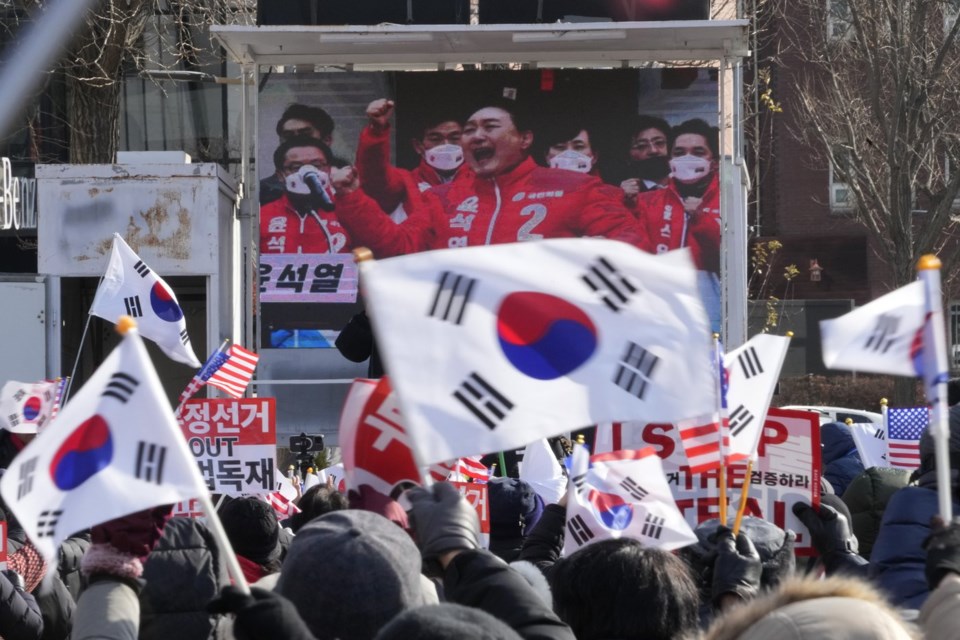SEOUL, South Korea (AP) — South Korea’s anti-corruption agency says it has received a new court warrant to detain impeached President Yoon Suk Yeol after its previous attempt was blocked by the presidential security service last week.
The Corruption Investigation Office for High-Ranking Officials on Tuesday did not immediately confirm how long the warrant would remain valid. The agency’s chief prosecutor, Oh Dong-woon, refused to answer when asked by lawmakers when the warrant would expire, saying such information is sensitive as the agency and police contemplate ways to execute the warrant. Warrants typically last seven to 10 days.
The Seoul Western District Court last week had initially issued a warrant to detain Yoon and a separate warrant to search his residence after he defied authorities by refusing to appear for questioning over his Dec. 3 martial law decree.
About 150 anti-corruption agency investigators and assisting police officers attempted to detain Yoon on Friday but retreated from his residence in Seoul after a tense standoff with the presidential security service that lasted more than five hours. The investigators did not make another attempt to detain Yoon before the previous court warrants expired on Monday.
The anti-corruption agency and police have pledged to make a more forceful effort to detain Yoon, which could be a complicated process as long as he remains in his official residence.
The anti-corruption agency, which is leading a joint investigation with police and the military, has been weighing charges of rebellion after Yoon declared martial law and dispatched troops to surround parliament. Lawmakers who managed to get past the blockade voted to lift martial law hours later.
Yoon’s presidential powers were suspended after parliament voted to impeach him on Dec. 14, accusing him of rebellion. The Constitutional Court has started deliberations on whether to formally remove Yoon from office or reinstate him.
Members of the presidential security staff were seen installing barbed wire near the gate and along the hills leading up to the presidential compound over the weekend. Oh confirmed to lawmakers that the agency was debating with police on whether to arrest members of the presidential security staff if they forcefully obstruct efforts to detain Yoon.
If investigators manage to detain Yoon, they will likely ask a court for permission to make a formal arrest. Otherwise, he will be released after 48 hours.
Yoon’s lawyers argued the detention and search warrants against the president cannot be enforced at his residence due to a law that protects locations potentially linked to military secrets from search without the consent of the person in charge — which would be Yoon. They also argue the anti-corruption office lacks the legal authority to investigate rebellion charges and delegate police to detain Yoon.
Kim Tong-hyung, The Associated Press



